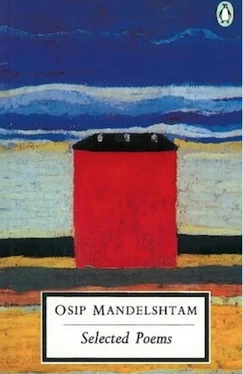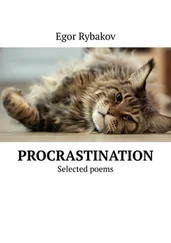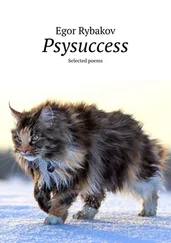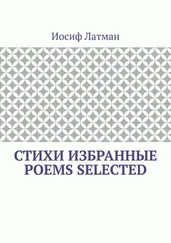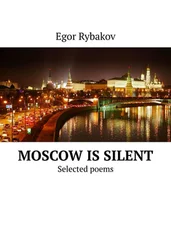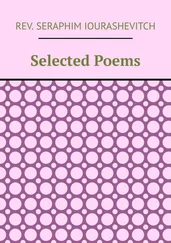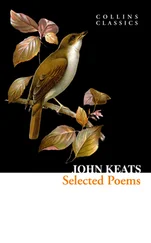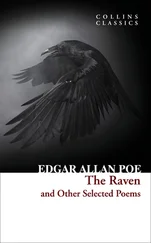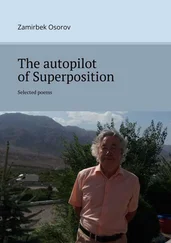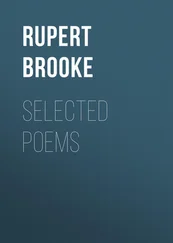Osip Mandelshtam - Selected Poems
Здесь есть возможность читать онлайн «Osip Mandelshtam - Selected Poems» весь текст электронной книги совершенно бесплатно (целиком полную версию без сокращений). В некоторых случаях можно слушать аудио, скачать через торрент в формате fb2 и присутствует краткое содержание. Город: London, Год выпуска: 1991, ISBN: 1991, Издательство: Penguin Books, Жанр: Поэзия, на английском языке. Описание произведения, (предисловие) а так же отзывы посетителей доступны на портале библиотеки ЛибКат.
- Название:Selected Poems
- Автор:
- Издательство:Penguin Books
- Жанр:
- Год:1991
- Город:London
- ISBN:978-0-14-196539-0
- Рейтинг книги:4 / 5. Голосов: 1
-
Избранное:Добавить в избранное
- Отзывы:
-
Ваша оценка:
- 80
- 1
- 2
- 3
- 4
- 5
Selected Poems: краткое содержание, описание и аннотация
Предлагаем к чтению аннотацию, описание, краткое содержание или предисловие (зависит от того, что написал сам автор книги «Selected Poems»). Если вы не нашли необходимую информацию о книге — напишите в комментариях, мы постараемся отыскать её.
Selected Poems — читать онлайн бесплатно полную книгу (весь текст) целиком
Ниже представлен текст книги, разбитый по страницам. Система сохранения места последней прочитанной страницы, позволяет с удобством читать онлайн бесплатно книгу «Selected Poems», без необходимости каждый раз заново искать на чём Вы остановились. Поставьте закладку, и сможете в любой момент перейти на страницу, на которой закончили чтение.
Интервал:
Закладка:
What are now known as the Voronezh notebooks are 189 pages spanning three years: they represent three intense spurts spaced by long months of almost total silence: twenty-three poems date from spring and summer 1935; the second notebook’s fifty poems come from nine weeks of the winter of 1936/7, while the last notebook holds about two dozen poems from spring 1937. The poems are precisely dated and show some thematic grouping: the first volume of Nadezhda Yakovlevna’s memoirs, Hope Against Hope , should be read for the evidence of their authenticity and their origin.
The first notebook has to cope with a new landscape – the forests of the Urals and the black earth of the steppe so alien to Mandelshtam’s urban or Hellenic scenery. Drawing on the phrase of Voronezh’s famous nineteenth-century pseudo-folk poet Koltsov – ‘step-mother steppe’ (a pun in English, not in Russian) – Mandelshtam makes literal his own image of poetry as a plough digging up time, (‘it ploughs the ear with a chilly, morning clarinet’) and arrives at a surrogate of the musicality he needs in his surroundings: ‘a mildewed flute’. That sense of a ruined instrument stays with his Voronezh poetry, culminating in the ‘Greek flute’ that slips from the poet’s hands and lips in 1937. Far from the sea that moulded St Petersburg and the Crimea, Mandelshtam feels his new element, the black earth, to be fit only for the burial of ‘This charred, bony flesh’.
A little work for radio in 1935, a sanatorium stay in Tambov, a visit by Anna Akhmatova, support from Pasternak and from Natasha Shtempel (who risked her own and her family’s lives to befriend the Mandelshtams) enabled the poet, despite the new wave of purges sweeping the country, to gather his strength for the extraordinarily productive few months of the second and third Voronezh notebooks, in which all his interests, imagery and linguistic resources combined. Modern physics and Christianity he had already discovered to be linked in the work of Pavel Florensky, priest and mathematician, who proved that Dante’s cosmology could only be reconciled with Einstein’s theory of relativity: this stimulates Mandelshtam to new syntheses. Writing his Conversation about Dante , he treats himself as an explorer of hell, and he learns to face Christian demonology in the steppes. His lines, ‘What can we do with the murderous plains?/… And is not he who makes us shriek in our sleep/Slowly crawling across them – /The space for Judases not yet born?’, sound the same apocalyptic alarm as Yeats’ ‘rough beast… slouching towards Bethlehem to be born.’
Like every interpreter of the apocalypse, Mandelshtam begins to detect ominous parallels. His verse had always invested much of its power in rhyme, in the significance of assonance. In the poems of the second Voronezh notebook, coincidences of sound between opposites take on extraordinary meaning. The whispering ‘cat language’ – k, p, t, ch – of Armenian is combined with rich earthy sounds – or, ar ; traditional Russian puns, such as the rhyme of guby , lips, with gubit ’, to destroy, are enlarged. Words such as os’ , axis, become crucial, since they link the poet ( Osip ) with his persecutor, Josef Stalin, and negative images such as wasps ( osy ). The weft is so elaborate that Mandelshtam now begins to defy translation.
A full understanding of this poetry is perhaps unattainable, even with the help of Nadezhda’s memoirs, so varied and often private are the sources and references: Voronezh’s art gallery, chance remarks by visitors as well as new reading merge with Mandelshtam’s rekindled sense of his own Jewishness: ‘I am plunged into a lion’s den…/Under the leavening shower of these sounds:/… more potent than the Pentateuch.’ Only in 1987, for instance, were Natasha Shtempel’s memoirs published and the dedicatory import of many poems, such as ‘With her delightful uneven way of walking’, confirmed.
One clear development links the fate of the cosmos, the starry firmament, to that of the human skull, both vaults, repositories of truth now vulnerable to extinction. Poem after poem connects the movement of the human face, e.g. The birth of a smile , with the creation of order out of chaos, ‘A rainbow ties them both together,/ A glimmer of Atlantis strikes both eyes’, so that imagery of doom latent in the tender infant’s cartilage and the lost city of Atlantis coexist with the affirmation of creation. Mandelshtam, at his serenest, achieves a Lamarckian acceptance that the ‘escalator’ of evolution has to go into reverse. Just as women’s role is to mourn men, so the male poet’s role is to mourn the universe: poetry remains for him what it always was – elegy. ‘And I have accompanied the rapture of the universe/As muted organ pipes/Accompany a woman’s voice.’
Serenity did not silence protest: by the end of February 1937, Mandelshtam’s longest and most devious poem was finished: Verses on the unknown soldier . The title clearly destined it for publication: the naive could read it as a lament for the victims of the First World War, as today the Soviet editors introduce it as a prophecy of the Second. It is only too obviously a lament for the still unsung victims of the purges, and ends with a cry of fear. But the most frightening aspect of the poem is its incorporation of modern quantum physics and astronomy (a subject on which Mandelshtam’s namesake was then lecturing in Moscow University) and the anticipation of ideas yet to be born: the universe seen as a ‘black oyster’ in which starlight, once the source and image-bearer of ineradicable truths, is to be swallowed up. The starry vault whose image the human skull reflects is about to collapse. In this sense Stalin is a Copernicus capable of destroying cosmic harmony.
Mandelshtam redirected his attention to Stalin, forcing himself to the act of degradation inflicted on almost every poet, doomed or saved, in the 1930s: an ode to Stalin. But, incapable of simulation, he failed. Stalin appears as a counterpart to himself, the negative of the poet, sometimes through the same image, as an ‘idol in a cave’ surrounded by bones, trying ‘to recollect his human guise’. Only in ambiguity could Mandelshtam attempt any conciliation. Like novelists such as Bulgakov and Zamyatin, he was interested in the mind and pathology of his enemy to the point of sympathy, but not of panegyric.
In April 1937, Mandelshtam was denounced as a Trotskyist: although his exile was coming to an end, he was living on borrowed time. That spring, inspired by the marriage of Natasha Shtempel as well as the suicides and disappearances in Voronezh, there is a final burst of lyricism, as though he were confident that the survival of his verse was assured. The influence of Keats (Nadezhda knew English poetry) seems to underlie his poems on the Cretan urns and the Greek flute, which stand for a continuous creative spirit that moves from one ephemeral vessel to another. The Greek flute commemorates not only a Voronezh musician who was purged, but the Hellenic creative spirit which the poet no longer has the strength to express: ‘Clods of clay in the sea’s hands… My measure has become disease.’ The Russian language seems to prove the involvement of death in creation: mor , disease, links with mera , measure, just as the syllable ub is present in the words for lips, murder, diminish. The Greek thalassa and thanatos , sea and death, are the beginnings and endings of poetry, as their assonance shows.
Mandelshtam was virtually the only important Russian poet writing in the mid 1930s. The purges had silenced every major talent. Pasternak wrote his Artist in 1936, during a brief lull in the terror, but soon succumbed to the prevailing atmosphere; Nikolay Zabolotsky relied on his Aesopic, fauve technique to write about the disjointing of the times, while appearing to praise the brave new world around him, but the censors understood him and he was swept away in the same wave that destroyed Mandelshtam. Even abroad, poetic inspiration had apparently deserted Marina Tsvetayeva: Mandelshtam had no cultural milieu, no critical response, no publications after 1934 and even his private readers were too frightened to respond. The Voronezh poems were written for the poet and a shadowy posterity: the lack of feedback is one of the reasons for their nervous, cryptic and compressed tone.
Читать дальшеИнтервал:
Закладка:
Похожие книги на «Selected Poems»
Представляем Вашему вниманию похожие книги на «Selected Poems» списком для выбора. Мы отобрали схожую по названию и смыслу литературу в надежде предоставить читателям больше вариантов отыскать новые, интересные, ещё непрочитанные произведения.
Обсуждение, отзывы о книге «Selected Poems» и просто собственные мнения читателей. Оставьте ваши комментарии, напишите, что Вы думаете о произведении, его смысле или главных героях. Укажите что конкретно понравилось, а что нет, и почему Вы так считаете.
